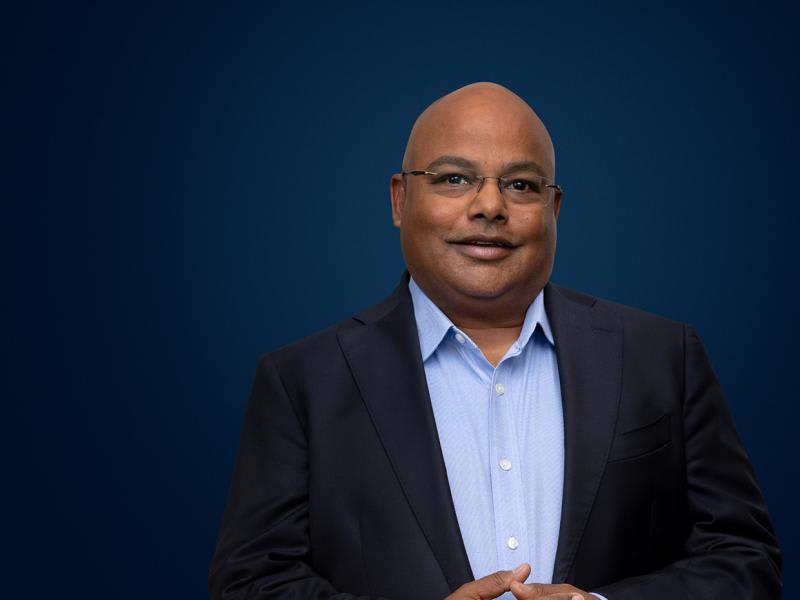Africa’s coming years will be defined by the continent’s ability to harness its demographic strengths, integrate its economies, and leverage innovation to build a sustainable and prosperous future. For middle-market businesses, this period of accelerated change presents remarkable opportunities for growth and resilience. By understanding the emerging trends and positioning strategically and inclusively, leaders can empower their organisations to thrive.

“Development without inclusion is not progress, it’s deferral. Sustainable change demands that all sectors, government, business, and civil society, act not in silos, but in synergy. These institutions remind us that civil society is not just a stakeholder at the table, but a co-creator of the systems we seek to build..”
Edite Felix
Head of Advisory, Mozambique
The future of Africa's middle-market landscape is currently being shaped by three powerful, interconnected forces: deeper regional integration, a widespread technology-driven transformation, and a clear focus on sustainability and purpose-driven action.
Key trends shaping the future to 2030 in Africa
1.Deepening economic integration through the AfCFTA
The African Continental Free Trade Area (AfCFTA) will continue to be a primary catalyst for economic transformation. As implementation matures, expect to see a significant reduction in trade barriers, leading to more resilient regional supply chains. This will create a more stable and predictable environment for businesses, encouraging cross-border expansion and investment. For the middle market, this means unprecedented access to a unified market of over 1.5 billion people, opening doors to new customers and simplifying continental operations.
2.The rise of a digitally-native economy
Digital transformation will continue to accelerate, touching every sector from agriculture to finance. Investment in digital infrastructure, including 5G networks, data centres, and fibre optic cables, will be crucial to provide the foundation for a new wave of innovation.
- Fintech evolution: Mobile money is expected to become even more sophisticated, expanding beyond just payments, deepening financial inclusivity and unlocking new capital for SMEs.
- Data-driven agriculture: The use of AI, the Internet of Things (IoT), and digital platforms in agriculture will be essential to modernise the sector and boost productivity, improve food security, and create more efficient value chains.
- Smart industrialisation: Automation and digital technologies will transform manufacturing and mining, enhancing efficiency, safety, and local value creation.
3.Sustainability as a core business driver
The global energy transition and the urgent need for climate adaptation place Africa at the centre of a new, green economy.
- Renewable energy dominance: Africa’s immense solar, wind, and geothermal potential needs to be unlocked at scale. Investment in renewable energy projects would not only address the continent’s energy deficit but also power green industrialisation.
- From extraction to processing: Demand for Africa’s critical minerals will continue to soar. If the focus shifts from pure raw material extraction to local processing and manufacturing, higher-value industries and skilled jobs can be created.
- Innovative and blended finance: With a significant climate financing gap, blended finance models will become essential. Partnerships between NGOs, private investors, and development finance institutions will help to scale up investments in climate-resilient infrastructure, sustainable agriculture, and clean energy.
Strategic opportunities for the middle market in Africa
To capture the opportunities of the coming decade, middle market leaders must adopt a forward-focused mindset. Success will depend on the ability to be agile, innovative, and deeply collaborative.
- Embrace cross-border growth: Develop strategies that look beyond national borders. The AfCFTA makes a pan-African approach more viable than ever. Building regional partnerships will be key to navigating diverse markets effectively.
- Invest in digital capabilities: Digital transformation has become a core enabler of growth. Prioritising development in technology can enhance operational efficiency, broaden reach, and support new business models.
- Integrate ESG principles: Embedding environmental, social, and governance (ESG) standards into core strategies can help build resilient, future-proof businesses that attract investment, talent, and customer loyalty.
- Focus on people: Africa’s young, dynamic population remains its greatest resource. Investment in skills development, digital literacy, and leadership training can position organisations to leverage this demographic potential.
We partner with middle-market businesses and industry leaders to Take Charge of Change by combining our global reach with local, personalised expertise. Through meaningful collaboration and a deep understanding of clients' challenges and ambitions, we create insights and solutions that blend future-focused knowledge with practical, real-world experience. This is The Power of Understanding, instilling organisations with confidence in a world of change and helping them shape a brighter future as One Africa, within One RSM.





